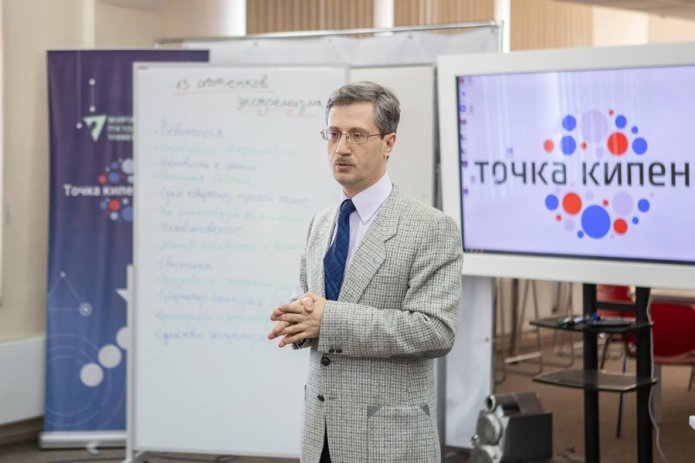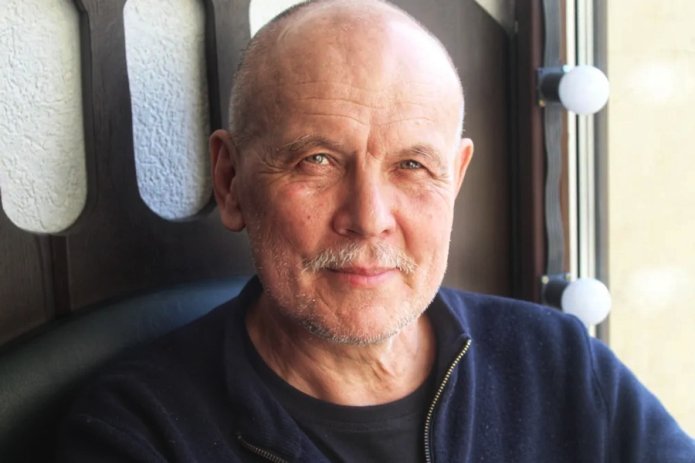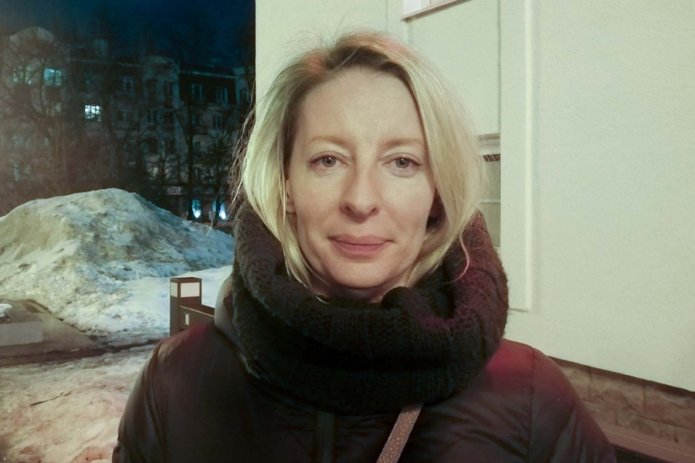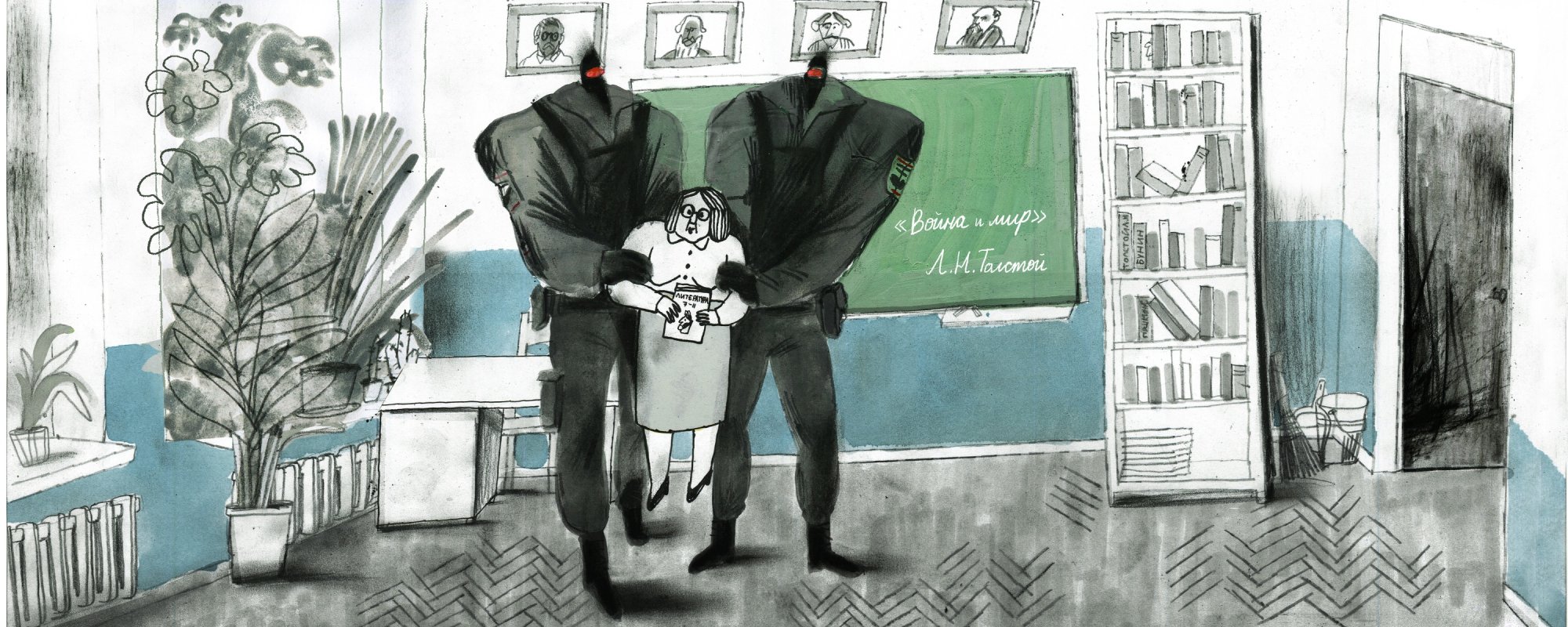The invasion of Ukraine by the Russian military on February 24 sparked a wave of protests across Russia. Virtually everyone who disagreed with the official government position became a target for repression. School teachers and university professors, among others, were persecuted more frequently than before. Their anti-war statements were reported to the authorities and led to fines, dismissals, and even criminal cases against them.
On April 19, the rector of Volgograd State University fired Roman Melnichenko from his positions of docent [associate professor] and leading researcher at the Department of Constitutional and Municipal Law. Prior to that, he had been reported to the police for an anti-war post on his social media, and this report was investigated by the VolSU ethics committee.
Melnichenko does not know exactly which one of his posts drew such attention from the authorities. From February 24 to March 4, he published several posts about the situation in Ukraine on VKontakte social network.
«I posted some photos of my relatives from Ukraine and reposted some videos», — recalls the scholar. «I wrote ‘Look, they started bombing Ukraine, and my parents are there right now. They’re my family, what do they have to do with Bandera?! ’ I’m a lawyer, so, naturally, I understood that there’s a certain line I should not cross, and I was very cautious when I wrote that. At the [university ethics] committee, I was only shown some hyperlinks to my posts printed out on paper, so I couldn’t check where they point to. And I was later asked to remove all my posts anyway.»
He says that it was the head of the department who asked him to remove his publications. «She called me and said that everyone was shocked. As I learned later, some professors had already been charged with administrative offenses for their anti-war posts on Facebook. The dean had told her to talk to me. And he, as far as I understand, was informed about this by the lady who is in charge of the press at our university. She had been told to monitor all our social media. And so we sat down together with the head of the department, and she pointed her finger at the things I should delete. Otherwise, she said, the whole department where I was working would be closed down», says Melnichenko.
Despite the fact that the scholar deleted all the posts, after the committee hearings, he was taken in by the police. At the police station, he was charged with «abuse of freedom of press» (Article 13.15 of the Code of Administrative Offences) and «violating passport regulations» (Article 19.15.2 of the Code of Administrative Offences). As of now, his case has not been decided yet, but the prosecution has already sent a letter to VolSU that refers to Melnichenko’s «unethical behavior» on social media.
«I came to work the day after the detention, and I was told that I was going to be fired. I started preparing for this: I did a stream where I asked for help with covering the legal expenses as I didn’t know how much it would cost and how long it would last», Melnichenko says. «The next day I started getting messages from journalists: they contacted the university, and they were told that I was being half-fired. I have two positions: docent [associate professor] and leading researcher, and I would allegedly only be fired from one of those. By the evening it turned out that no one was firing anyone at all. I’d already started thinking that everything will just settle down when, a few weeks later, I was summoned to the dean and given back my employment record book.»
The formal reason for the dismissal from the position of docent was, allegedly, absence from work and as to the position of professor, it was «immoral behavior». What exactly constituted such behavior, Melnichenko does not yet know as he has still not been given a copy of the order.
Meanwhile, there has not been any official directive from «above» about relaying a certain stance on the war in Ukraine in university lectures, the professor says. Melnichenko himself also believes that he should not express his opinions on the political situation in the country during his lectures.
«There was one case [after February 24] when a student asked me during a lecture if Putin would be brought to trial. I explained: ‘This is an educational institution, so when you ask such questions, you put not merely yourself, but also me and the entire university in a tough spot. My mission is to teach you in such a way that you would yourself understand what is going on’. The student replied that he saw what I meant», Melnichenko recalls.

Melnichenko was not the only one who was put under pressure for his anti-war stance. On March 19 Ilia Kukulin, a philologist at NRU HSE, announced that the university administration forced him and Maria Maiofis, a culturology docent at the HSE Department of Humanities, to sign resignation notices «at their own accord». The reason for this request was the fact that they spoke out on social media against the «special operation» in Ukraine.
On March 25, a court in Sakhalin fined a school teacher for speaking against the war in front of her students. The school responded with disciplinary action. On the same day in Saint-Petersburg, two policemen detained a handicraft teacher and a Ukrainian citizen Gennadiy Tychina during the lesson. A few days before that he mentioned being proud to be a Ukrainian in a conversation with a security guard.

A few days later a docent of East Siberian State University in Ulan-Ude, Sergei Levitskiy, was temporarily suspended from work because he published a text post «containing negative statements concerning Russia» on «his personal page» in Telegram.
On March 31, a court in Blagoveshchensk fined a university professor for 30,000 rubles. According to the case file, the woman «spread misinformation discrediting the actions of the Russian military» during a lecture.
On April 5, Marina Dubrova, an English teacher from the Sakhalin region, was fired from school № 6 because she voiced her opposition to the war in Ukraine while talking to her students. The students recorded this conversation on video and complained to their parents, after which a student’s mother filed a police report. The teacher was first fined 30,000 rubles on the grounds of «discrediting» the Russian military (Article 20.3.3 of the Code of Administrative Offences), then summoned to the headmaster, who said that a teacher must not «politicize the children».
A similar story happened in Penza at the beginning of April. The difference is that it resulted in a criminal case against Irina Gen, another English teacher. While talking to her students, Gen spoke out against the war, after which she was charged with spreading «fakes» about the Russian military (Article 207.3 part 2 of the Criminal Code). According to these charges, she could spend up to ten years in a colony.
A part of the conversation that became grounds for the case was published by the Telegram channel Baza. In these fragments, one can hear a pupil asking why Russian children cannot compete in the European Swimming Championship. In response, Irina Gen began talking emotionally about the war in Ukraine and the «totalitarian regime where dissent of any kind is regarded as thought crime.»
Pressured by FSB officers, the teacher admitted her guilt. She was promised minimal punishment if she agreed to cooperate with the investigators.
«Right now our goal is to renounce this admission of guilt», says Irina Gen’s lawyer Alexander Fedulov, who is cooperating with Agora, a human rights advocacy group. «We will promote a slightly different version of the events. The allegations right now are based on the fact that the information about the situation in Ukraine given to the children by Irina is incorrect because the Ministry of Defence officially provides different information. So we will base our defense on the fact that, while giving this information about Ukraine to the children, had no idea that it was incorrect. We will try to protect the awareness principle.»

According to Pavel Chikov, the head of Agora, at the beginning of April 2022, about 20 cases similar to that of Irina Gen appeared in Russia. Another teacher charged with spreading «fakes» about the Russian army (Article 207.3 part 1 of the Criminal Code) is Irina Tolmacheva, a member of «Teachers Alliance» (an independent trade union) in Novosibirsk. On March 25, the police arrived at her home with a search warrant.
«One of the policemen showed me his papers, told me his name, then showed me the act about instilling criminal proceedings. Another one stood by his side. They told me to lie face down on the floor and then went through the entire flat. Probably looking for something», Tolmacheva recalls.
The grounds for opening the criminal case, as she was told later, was a comment that she left on Novosibirsk city council member Sergei Boiko’s Instagram page.
«It was something about how our Ministry of Defence only acknowledges some of the soldier deaths. I wrote this comment on March 3. On March 4, the law on „fakes“ about the Russian Army came into effect, but by that time I’d already forgotten about that comment», says the teacher. «First I was taken in for interrogation as a witness, but then the investigator said that, since I’d admitted that it was I who wrote the comment, I was now a suspect in this case. The appointed lawyer persuaded me to sign a voluntary surrender and make confessionary statements because allegedly it would be easier that way, the judge will agree to a special procedure and we’d manage to bring the maximum sentence from three years down to just two. Now I do understand that the section I’m charged with says nothing about jail time at all because it’s not a felony, but then I was in a state of shock, so I agreed.»
Tolmacheva will be represented in court by lawyer Fedulov. «We will be asserting that Irina analyzed many sources and had a sincere conviction that she was telling the truth, » he says.

A member of the «Teachers against war» initiative group, Olga Miriasova, told us that the pressure against teachers has indeed increased after the Russian invasion of Ukraine on February 24. It all began when one of the teachers decided he could not remain silent and suggested that his colleagues sign his open letter about the war.
«The letter was composed in a single day. We published the forms for gathering signatures and gathered about five thousand by March 4. In the meantime, we also created a website where these signatures were being published. After the law on „fakes“ about the army came into effect, we changed the wording of the letter, and about two weeks later we removed it from the site altogether. The reason was that many teachers were forced to write explanatory reports. Apparently, it was a regional initiative of some sort, because in some regions there were no problems at all, but in others they would come to the teachers, ask them to revoke their signature and threaten to fire them. So then we decided to somehow support these people and begin consulting them on what they could do in case some unpleasant consequences arise», Miriasova explains.
She adds that, in addition to the pressure caused by signing the anti-war letter, the teachers are facing other hardships after February 24. The media reported about at least 8 people having been fired because of their anti-war stance. Sometimes teachers resign themselves, sometimes they get fired after a legal case. At least three teachers received sentences for taking part in anti-war protests. Some have been fined or arrested.
It is difficult to predict the outcome of such stories. In some cases the teachers themselves decide to resign because they realize they cannot work in such a team. Sometimes they manage to mend their relations with the administration thanks to personal connections.
Grigoriy Durnovo, an analyst at OVD-Info, also agrees that there are now more instances of teachers coming under pressure due to anti-war protests. «We can now speak of more totality in the control over schools and universities, of a single correct interpretation of events being forced on them and, as a result, of the persecution of those with a dissenting opinion growing more severe. I would add that teachers are a separate category, anyway, because the government has long been worrying that the young generations are being instilled with something wrong. But now this intensified», Durnovo notes.
Karina Merkuryeva



